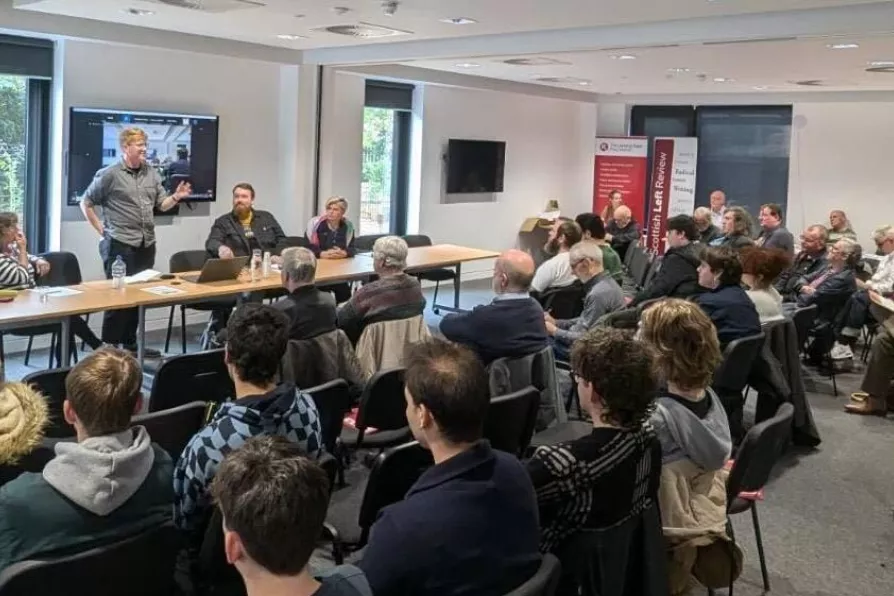Fight for real change is the rallying call at Morning Star Scotland’s autumn conference

 A scene from today's Morning Star Scotland autumn conference, September 15, 2024
A scene from today's Morning Star Scotland autumn conference, September 15, 2024
FIGHTING for real change was the rallying cry, as workers from across Scotland gathered in person and online for Morning Star Scotland’s autumn conference today.
Held at the STUC’s Glasgow base, it was opened by Lynn-Marie O’Hara of Unison, who welcomed numerous comrades with whom she had “stood side by side and shoulder to shoulder with in Erskine.”
Similar stories

Working-class women lead the fight for fair work and equitable pay and against sexual harassment, the rise of the far right and years of failed austerity policies, writes ROZ FOYER

Our roving AGM from this Thursday through Sunday and our upcoming Morning Star Conference 2025 on June 14 in London are great opportunities to meet the team and help plan the way forward, says editor BEN CHACKO












